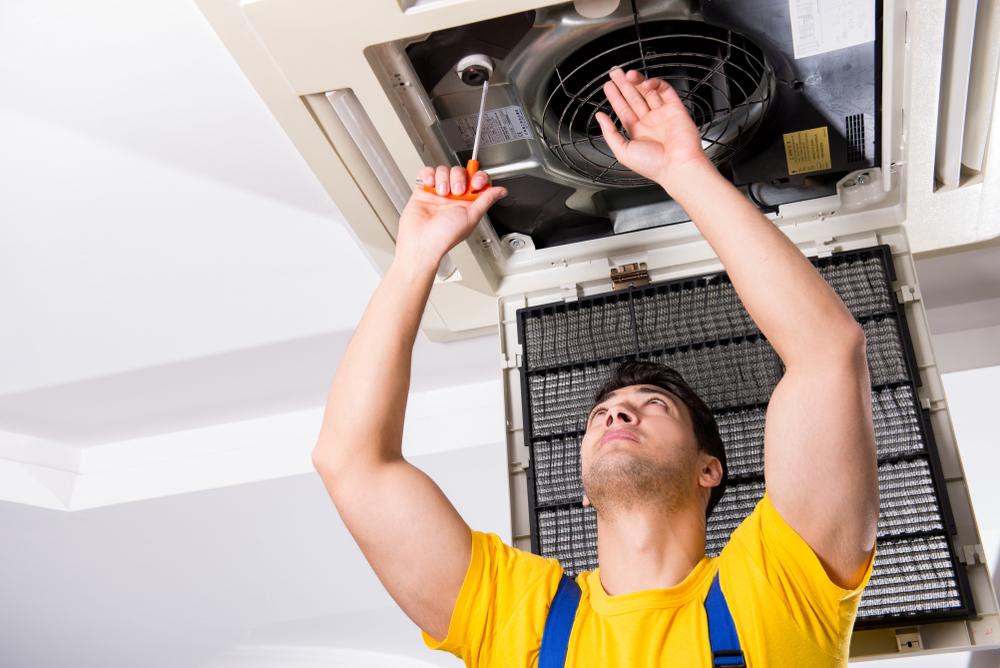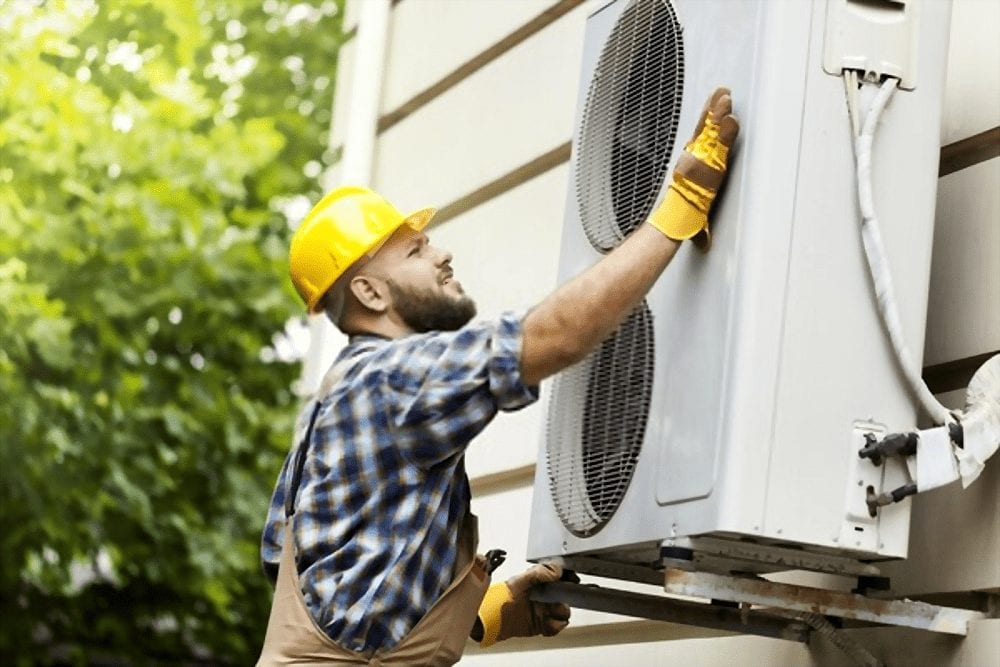Tips for Prolonging HVAC Lifespan Through Consistent heat pump service
Wiki Article
Selecting Between a Heatpump and Furnace: Secret Considerations for Your HVAC Needs
When examining home heating choices for heating and cooling needs, the decision between a heatpump and a heating system can be intricate. Each system offers unique advantages customized to details climates and power effectiveness goals. Comprehending these differences is crucial for making an informed choice. Trick aspects such as installation costs and ecological influence better make complex the option procedure. Which option absolutely lines up with one's comfort and sustainability preferences? The complying with areas will certainly discover these considerations in information.Comprehending Warmth Pumps: Exactly How They Function and Their Benefits
While lots of property owners take into consideration numerous home heating choices, understanding exactly how warm pumps feature and their advantages can substantially affect their decision. Warm pumps operate by moving heat instead of creating it. In the winter months, they remove heat from the outside air or ground and transfer it indoors, while in the summer, they reverse this procedure, cooling the home by expelling heat outside. This double capability makes them versatile for year-round climate control.One of the primary advantages of heatpump is their energy performance. They use substantially much less electricity contrasted to conventional heating systems, possibly resulting in reduced energy bills (ductless mini splits). Additionally, warm pumps have a smaller sized carbon impact, making them an eco-friendly choice. They additionally call for much less maintenance than traditional systems, adding to long-lasting cost financial savings. In general, recognizing the mechanics and benefits of heatpump can assist homeowners make educated decisions concerning their heating and cooling down needsExploring Heaters: Types, Operation, and Benefits
Furnaces can be found in numerous kinds, including gas, electric, and oil designs, each with distinctive operational systems. Recognizing these distinctions is necessary, as they impact performance and home heating performance. In addition, heaters provide many advantages, such as consistent heat result and integrity in chillier climates.Kinds of Furnaces
Heating unit can differ significantly in design and operation, with heating systems being a popular selection amongst property owners. There are numerous kinds of heaters, each utilizing different gas resources and technologies. Gas heating systems prevail, leveraging gas to create warmth efficiently. Electric heaters, on the other hand, utilize electrical resistance to create warmth, frequently preferred for their uncomplicated installment. Oil furnaces, while much less usual, work in locations with limited gas access (heat pump service). Furthermore, condensing furnaces maximize power efficiency by recycling and catching exhaust gases. Each type runs through a system of warm exchangers and ductwork to distribute warm air throughout a home. Understanding the distinctions in between these heater kinds is important for educated cooling and heating choicesAdvantages of Heating systems
For home owners seeking trusted heat during chilly months, the benefits of heating systems are substantial. Furnaces offer constant heating, guaranteeing also temperatures throughout the home. They are specifically effective in severe chilly, frequently exceeding warmth pumps in freezing conditions. Various types, including gas, electrical, and oil furnaces, use versatility to fulfill varied demands and preferences.Furnaces also often tend to have reduced initial installment expenses compared to heatpump, making them a more obtainable option for several. Their durable layout adds to a longer life expectancy, with many units lasting over 15 years with appropriate maintenance. Additionally, modern heaters are often outfitted with advanced technology for improved effectiveness, which can bring about lowered energy bills. Overall, heaters continue to be a dependable choice for reliable home heating.
Power Performance: Comparing Warmth Pumps and Furnaces
When comparing energy efficiency in between heatpump and heaters, the Seasonal Energy Effectiveness Proportion (SEER) plays an important role in determining performance. Furthermore, a functional expense analysis exposes the lasting financial effects of each system. Comprehending these factors can assist property owners in making notified decisions about their heating options.Seasonal Energy Performance Ratio
Energy performance plays a necessary role in the decision-making procedure between heatpump and heating systems, specifically when considering the Seasonal Power Performance Proportion (SEER) This metric procedures the cooling performance of warm pumps over an entire cooling season, offering a standardized method to examine efficiency. Greater SEER rankings suggest better energy performance, translating to lower power intake and minimized energy bills. In comparison, heaters are generally examined making use of the Annual Fuel Use Efficiency (AFUE) ranking, which reflects heating efficiency. When comparing these 2 systems, homeowners should prioritize SEER ratings for heat pumps, as they straight effect general energy financial savings and ecological sustainability. A comprehensive understanding of SEER can notably affect the long-lasting complete satisfaction and cost-effectiveness of the chosen HVAC remedy.Functional Price Analysis
Understanding the operational costs associated with warmth pumps and furnaces is vital for home owners assessing their options. Heatpump usually offer greater energy effectiveness, converting electric energy into heat with minimal waste. This causes lower month-to-month utility costs, particularly in modest environments. On the other hand, traditional heaters, especially gas models, might have reduced ahead of time prices but can incur higher functional expenses with time as a result of fuel prices and efficiency ratings.Moreover, heatpump can function as both heating and cooling down systems, potentially reducing the requirement for separate cooling and heating systems. While first investments for warmth pumps might be higher, official website their long-lasting cost savings in energy performance can make them an extra affordable selection for many households. Careful analysis of regional energy rates is necessary to figure out the ideal choice.Setup Expenses: What to Anticipate for every Home Heating System
Installation costs for heater can differ substantially between warm pumps and heating systems, affecting home owners' decisions. Heatpump generally have higher ahead of time setup prices, generally varying from $3,500 to $8,000, relying on the system dimension and intricacy of installation. This consists of the exterior device, interior handling system, and essential ductwork alterations. Alternatively, furnaces often tend to have reduced first costs, averaging in between $2,500 and $6,000, which can be appealing for budget-conscious home owners. Setup costs can boost if considerable ductwork is required.Moreover, the selection of fuel type for heating systems-- natural gas, gas, or electrical-- can likewise impact installation prices. While warmth pumps use energy efficiency, their initial financial investment might discourage some customers. Eventually, examining installation expenses along with lasting cost savings and performance will certainly assist homeowners in making educated choices about their heating unit.Climate Considerations: Which System Does Much Better in Your Area
How do climate conditions affect the performance of heater? The performance of heatpump and furnaces can vary considerably depending upon the local environment. In moderate climates, heatpump succeed by successfully transferring heat from the outside air, making them an energy-saving choice. Their effectiveness reduces in incredibly cold temperatures, where they may battle to extract sufficient warm. Conversely, heating systems, especially gas versions, offer consistent and reliable warm despite exterior conditions, making them more effective in cooler regions.In areas that experience milder wintertimes, heatpump can run successfully year-round, offering both heating & cooling. On the other hand, regions with severe winters months frequently take advantage of the robustness of heaters. Inevitably, recognizing the regional climate is necessary when making a decision in between a warm pump and a furnace, as it directly impacts their operational performance and general performance.Maintenance Demands: Long-Term Take Care Of Warmth Pumps vs. Furnaces
While both heat pumps and furnaces call for routine upkeep to guarantee peak efficiency, their details needs and treatment routines differ significantly. Furnaces generally require less constant focus, with annual assessments being sufficient to look for gas leaks, tidy filters, and analyze general capability. Their simpler layout often permits straightforward repairs.In comparison, heatpump demand biannual maintenance due to their double role in heating & cooling. This consists of cleaning coils, checking cooling agent degrees, and making sure that both the outdoor and indoor systems work at their finest. Additionally, warm pump maintenance typically includes even more detailed parts, making professional servicing essential.Neglecting upkeep can cause diminished effectiveness and raised energy prices for both systems. Eventually, property owners need to think about these long-term care needs when selecting between a heatpump and a furnace, as positive maintenance can expand the life expectancy and performance of either system significantly.Ecological Impact: Selecting a Lasting Home Heating Option
The environmental effect of heater is a vital analysis for property owners seeking lasting alternatives. Heatpump are typically a lot more energy-efficient than conventional heating systems, as they move warm instead than generate it, greatly decreasing carbon exhausts. By using sustainable power sources, such as geothermal or air-source heat pumps, house owners can better decrease their eco-friendly footprint.On the various other hand, all-natural gas heaters release greenhouse gases and add to air pollution, though they commonly give higher heat result. Innovations in innovation have led to the growth of high-efficiency furnaces that minimize emissions.Ultimately, choosing a heating system involves weighing effectiveness versus environmental effect. Home owners are encouraged to reflect on regional power resources and motivations for eco-friendly systems, guaranteeing an option that lines up with both individual convenience and environmental duty. The choice influences not just instant comfort but likewise long-lasting sustainability and ecological wellness.Often Asked Inquiries
How Much Time Do Heat Pumps and Furnaces Usually Last?
The life-span of heatpump normally varies from 15 to two decades, while heaters can last between resource 15 to 30 years. Regular maintenance significantly affects their longevity and efficiency in providing heating solutions.Can I Utilize a Heatpump in Very Cold Climates?
Heat pumps can operate in exceptionally chilly environments, yet their efficiency reduces as temperatures drop. In such problems, extra heating resources may be required to preserve comfy indoor temperature levels and ensure peak efficiency.
What Is the Sound Level of Heat Pumps Versus Furnaces?
The sound degrees of warm pumps and heaters differ find this substantially. Typically, heatpump run more silently than standard heating systems, making them more suitable for those delicate to sound, while heaters might produce louder operational sounds throughout home heating cycles.
Are Heat Pumps Suitable for Both Cooling And Heating?
Warmth pumps are without a doubt appropriate for both home heating and cooling (ductless mini splits). They function by moving heat, supplying reliable temperature control year-round, making them a versatile choice for homeowners seeking an all-in-one a/c solutionWhat Size Heating System Do I Required for My Home?
Establishing the appropriate size heater for a home calls for examining aspects such as square footage, insulation high quality, local environment, and the home's format. Consulting an expert can guarantee an accurate assessment and optimal comfort. Warmth pumps commonly offer greater power efficiency, converting electric power right into warm with very little waste. In modest environments, warmth pumps stand out by effectively transferring heat from the outdoors air, making them an energy-saving alternative. Conversely, heating systems, specifically gas versions, offer consistent and reliable warm regardless of outside conditions, making them more suitable in colder regions.In areas that experience milder winter seasons, warmth pumps can operate efficiently year-round, supplying both heating and air conditioning. Warmth pumps are usually a lot more energy-efficient than standard furnaces, as they move warm rather than generate it, significantly minimizing carbon exhausts. By using renewable power resources, such as air-source or geothermal heat pumps, home owners can better decrease their eco-friendly footprint.On the other hand, all-natural gas heating systems send out greenhouse gases and contribute to air contamination, though they typically give higher warm result.Report this wiki page